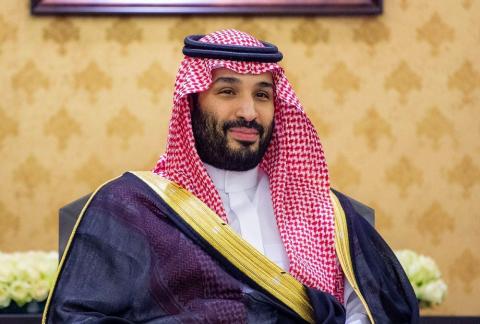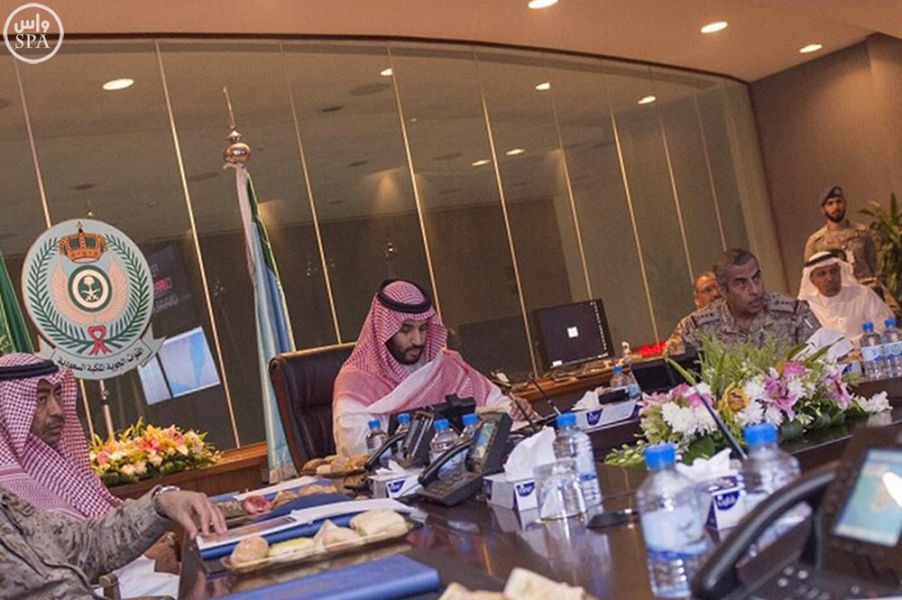
“Should the world buy what the crown prince is selling?” This is the question posed on the cover of the latest edition of Time magazine, accompanied by a photograph of Saudi Arabia’s Crown Prince Mohammed bin Salman sporting a mysterious look, reflecting the bold headline of “Charm Offensive.”
The cover, the question it poses, and the mysterious image may imply doubt or some kind of incredulity, but they still reflect a recognition of the importance of the changes in Saudi Arabia being led by the crown prince, and the campaign surrounding them.
The magazine suggests that the United States has never seen such a visit since Soviet leader Nikita Khrushchev’s 13-day tour of the country in 1959.
As the crown prince concluded a three-week visit, moving on to Europe, Time described the trip as a PR offensive; noting that the crown prince visited five states plus Washington DC, met four American presidents and then visited five newspapers and a large number of American media leaders.
In fact, the media meetings were the shortest in his busy itinerary. He allocated more time to industrial giants such as Boeing, energy companies, including solar-power businesses, technology firms such as Google and Facebook, service companies such as Amazon and Uber, as well as entertainment companies and weapons manufacturers. This was all in addition to the two days at the beginning of his trip dedicated to political meetings with the US administration and Congress.
The magazine may be right in comparing the significance of the crown prince’s visit to the historic visit by Khrushchev taking into consideration that the plans of the Saudi guest affect the Middle East Region, and nearly two billion Muslims around the world, and also aim to improve the relationship between the Western world and Muslims. However the comparison is unfair in the sense that it hints that these plans somehow include a bad hidden agenda. What are the odds that the crown prince might be hiding something through meeting all these politicians, thinkers and industrialists, and what could it be?
As the crown prince concluded a three-week visit, moving on to Europe, Time described the trip as a PR offensive; noting that the crown prince visited five states plus Washington DC, met four American presidents and then visited five newspapers.
Abdulrahman Al-Rashed
Does he want to convince them that he is leading the Kingdom? That he is doing so through the power of his official role is self-evident; hence he is not seeking their support or approval.
Does he want to convince the West about the benefits of his plans for social change? This hypothesis is not logical, as the West was always criticizing Saudi Arabia for neither progressing nor modernizing.
Does he want to convince the West of the importance of confronting Iran? This is already in line with the current political stance of Washington.
Does he want to convince American companies to invest in Saudi Arabia? This could be the only true interpretation of the visit — although we know that business leaders in the US are not influenced by promises and hyped-up rhetoric; they are looking for realistic ideas, action plans and well-documented commitments.
Khrushchev was leading a superpower competing with the US globally, as well as an ideological and political enemy; both cases do not apply at all to Saudi Arabia.
The other part of the Time editorial, after questioning the intentions of the Crown Prince, expresses doubts about his ability to execute his ambitious projects, be they of a political or religious ideology nature, or involving social change, or industrial. These issues must be left to history to judge.
All indicators, indeed, point to the fact that the execution of the projects is under way, and that they are more than just a set of ideas or empty PR promises. For example, many doubted the seriousness of the royal decree allowing women to drive, which was issued a few months ago and is due to be implemented in June. There is real activity, and a race against the clock, to ensure full readiness for the big day, including the establishment of a female traffic-police force, the opening of driving schools for women, and drafting the necessary changes to the law. Similar work is going on for industrial and service projects, and for initiatives involving tourism, arts and entertainment.
Questioning the ability of Saudi Arabia, and its crown prince, to execute his ideas and promises may be interpreted positively as an encouragement, because these are big and important ideas that deserve global recognition if executed successfully. As for the doubts expressed by Time magazine, we leave them to be judged by history.
Abdulrahman Al-Rashed is a veteran columnist. He is the former general manager of Al Arabiya news channel, and former editor-in-chief of Asharq Al-Awsat. Twitter: @aalrashed







